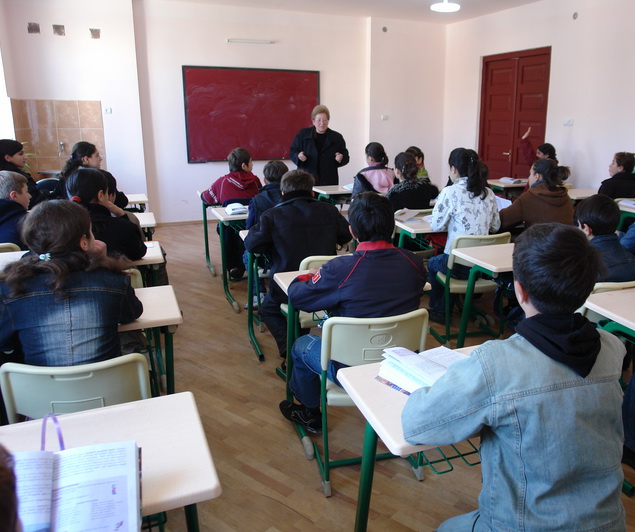
TBILISI, DFWatch–A human rights group in Georgia warns of an alarming trend of intolerance of religious minorities in public schools.
Human Rights Education and Monitoring Center (EMC) studied eight schools in Tbilisi and found that the Ministry of Education has not realized the severity of the problem of violations of the freedom of religion in schools.
Also, the environment in schools is intolerant and there are problems with school literature too.
EMC based their report on eight focus groups and found that most of the teachers’s attitudes were discriminative.
“To be a Georgian is similar to being a Christian”, “Popularization of orthodoxy is my, as an orthodox’s duty, how can I teach them Martyrdom of the Holy Queen Shushanik?”; “Unfortunately we have pupils who are Jehovah’s Witnesses. I say “unfortunately” because for me it’s unacceptable that Georgian is Jehovah’s Witness”. These are comments that teachers made about children with different religious beliefs.
According to the Public Defender’s 2013 report, there was no improvement in terms of freedom of belief in public schools last year. Ucha Nanuashvili said children with different religious beliefs are not protected from psychological, moral and physical harassment.
“A climate of discrimination and closed space creates a feeling of danger, making problems for representatives of minorities. (…) Parents and pupils refrain from talking publicly about discrimination in schools,” the ombudsman’s report says.
A 15-year old girl called Mari told DFWatch that her history teacher often starts her lessons with prayer and asks the pupils to cross themselves.
“Sometimes, when other teachers miss the class and we have free time, she takes us to the nearest church. We are all Orthodox in the class, as far as I know,” Mari said.
One of the key findings in the EMC report is that the Ministry of Education is unable to check the teaching material about religion beforehand and entrusts school with determining the content.
Lina Gvinianidze, the author of the study stated that the textbooks in history are biased, as the Georgian ethnicity is identified with Orthodoxy and is perceived as ‘us’, while non-Orthodox groups are seen as ‘others’ in a negative context.
“Religion can be a part of school program, but it should be taught as knowledge, not as belief,” Lina said.
“The Ministry of Education should react appropriately to such problematic cases, and retrain teachers, as the report showed their discriminative attitude. Also, there are some problems with textbooks that should be solved,” said Vakhushti Menabdze, spokesperson of EMC.
In conjunction with publishing the report, EMC has sent recommendations to the Ministry of Education.

